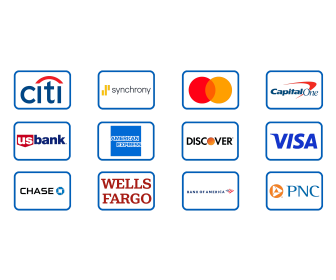Credit Cards Guidance in USA
Credit cards are widely used across the United States as a convenient and secure method of payment. With a range of benefits, including rewards programs, fraud protection, and credit-building opportunities, they have become an essential part of personal finance. However, understanding how to use credit cards responsibly is critical to avoiding debt and financial stress. This guide offers practical insights for both new and experienced users navigating credit card use in the USA.
1. Understanding How Credit Cards Work
A credit card allows you to borrow money up to a certain limit to make purchases or pay for services. At the end of each billing cycle, you receive a statement detailing your spending and the amount you owe. If you pay the full balance by the due date, you won’t incur interest. However, carrying a balance means you’ll pay interest on the remaining amount, often at high rates.
2. Types of Credit Cards in the USA
There are various types of credit cards tailored to different financial needs and lifestyles. Common types include:
- Rewards Credit Cards: Offer points, miles, or cash back on purchases.
- Balance Transfer Cards: Help consolidate debt with low or 0% introductory interest rates.
- Secured Credit Cards: Require a security deposit and are ideal for building or repairing credit.
- Student Credit Cards: Designed for young adults with limited credit history.
- Business Credit Cards: Offer tools and rewards for small business owners.
3. How to Choose the Right Credit Card
Selecting the right credit card depends on your financial goals and spending habits. Consider the following when comparing cards:
- Interest Rates (APR): Lower rates are better if you plan to carry a balance.
- Fees: Look for cards with no annual fee, or weigh the cost against benefits offered.
- Rewards: Choose cards that reward your most common expenses, like gas or groceries.
- Credit Requirements: Know your credit score before applying.
4. Building and Maintaining Good Credit
Using a credit card responsibly is one of the best ways to build a strong credit history in the U.S. Your credit score is influenced by several factors:
- Payment History: Always pay at least the minimum by the due date.
- Credit Utilization: Keep your balance below 30% of your credit limit.
- Length of Credit History: The longer you maintain accounts, the better.
- New Credit: Avoid applying for too many cards at once.
- Credit Mix: Having a variety of credit types (loans, cards) can help.
5. Avoiding Common Credit Card Mistakes
Many Americans fall into debt due to poor credit card management. Avoid these common pitfalls:
- Missing payments or making late payments.
- Carrying high balances that lead to interest charges.
- Applying for multiple cards in a short time frame.
- Ignoring fees or changes to interest rates.
- Using credit cards to spend beyond your means.
6. Credit Card Rights and Protections
Consumers in the USA have legal protections under federal law. The Credit CARD Act of 2009 and Fair Credit Billing Act ensure transparency and fairness in credit card billing and interest rate changes. Key protections include:
- Advance notice before interest rate increases.
- Clear statements with minimum payment warnings.
- Dispute rights for unauthorized or incorrect charges.
- Grace periods before interest is charged on new purchases.
7. When to Seek Help
If you’re struggling with credit card debt, don’t ignore the problem. Contact your card issuer to explore hardship programs. You can also seek help from nonprofit credit counseling agencies that can assist with budgeting, debt management plans, and financial education.
Conclusion: Use Credit Cards Wisely
Credit cards can be a powerful financial tool when used responsibly. In the United States, where credit scores are essential for financial mobility, understanding how to manage credit cards is more important than ever. By choosing the right card, paying on time, and staying informed of your rights, you can take advantage of the many benefits credit cards offer—while avoiding the risks.



